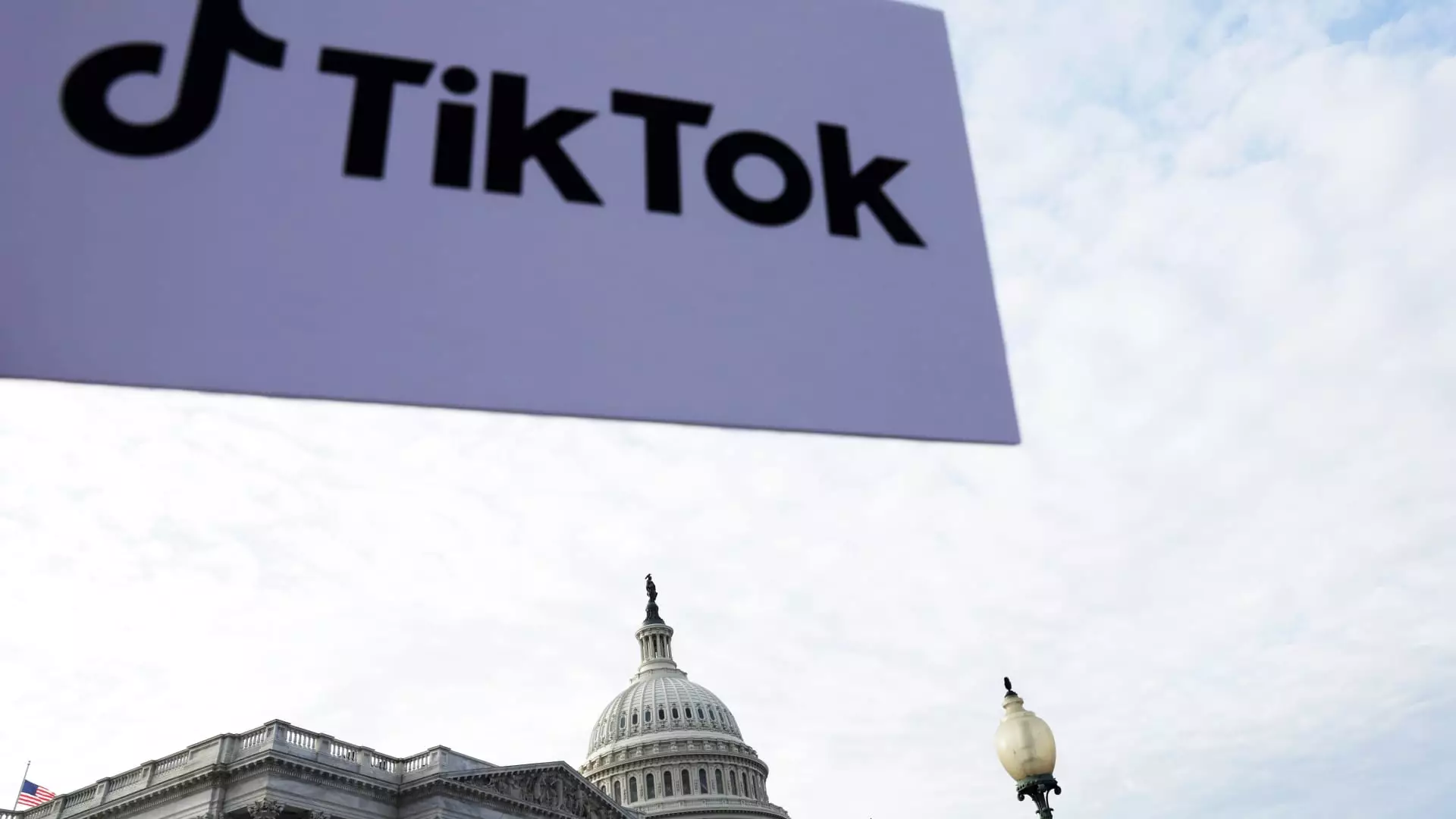As the TikTok saga unfolds in the United States, we find ourselves at a critical juncture where national security, corporate responsibility, and economic welfare collide. Recent developments indicate that major tech players, namely Apple and Google, may soon be forced to take significant action regarding the popular social media app. Under the umbrella of U.S. law aimed at reining in foreign influence, TikTok’s future hangs by a thread, putting both users and businesses at risk.
House Committee members, with a shared concern for national security, have sent stern reminders to the CEOs of Apple and Google, urging them to prepare for potential compliance with a law that could lead to TikTok’s effective ban as early as next month. This follows a ruling by the U.S. Court of Appeals, which upheld a law mandating ByteDance, TikTok’s Chinese parent company, to divest the platform by January 19. Failure to comply could render it unlawful for Apple and Google to continue hosting the app, emphasizing the responsibilities of app store operators in safeguarding American digital spaces.
In their correspondence, Representatives John Moolenaar and Raja Krishnamoorthi emphasized that without a successful divestiture, the law prohibits any distribution, maintenance, or updating of applications controlled by foreign adversaries. Their warnings reflect a broader bipartisan concern regarding the implications of foreign influence via social media and the complexities of seemingly innocuous applications embedded in everyday American life.
In light of the court’s decision, TikTok has launched an emergency motion to halt the impending ban ahead of its appeal being heard by the U.S. Supreme Court. TikTok’s arguments center on the claim that the law in question infringes upon the First Amendment rights of its vast user base, reported to be around 170 million in the U.S. This legal battle showcases the intricate dance between corporate rights and governmental authority, raising pivotal questions about the limits of regulation in the digital age.
Nevertheless, the appeals court stood firm, declaring the law “narrowly tailored” to address national security issues, which only intensifies the stakes for TikTok. The company has also stressed the economic repercussions of a ban, projecting a staggering loss of approximately $1.3 billion in sales and earnings for U.S. small businesses and content creators within just one month of implementation.
Political Influence and Financial Stakes
Another layer of complexity arises from the intertwining of politics and business interests. While President-elect Donald Trump has not explicitly commented on enforcing the ban, his previous administration made public attempts to restrict TikTok’s operations. This situation begs the question: will political affiliations and significant financial backers influence the enforcement of such a ban?
Reports indicate that Trump’s potential engagement with billionaire Jeff Yass—a notable investor in TikTok’s parent company—could sway future actions. Yass’s investments in both TikTok and the entity behind Trump’s Truth Social platform illustrate the blurred lines between stakeholder interests and regulatory actions, leading to speculation about the motivations behind political decisions.
The looming threat of a TikTok ban raises concerns not only for the platform’s user base but also for various sectors reliant on its functionality. Content creators, small businesses, and marketing firms have increasingly turned to TikTok as a crucial avenue for reaching audiences and driving sales. A ban would therefore not only stifle innovation in social media but also disrupt economic streams, disproportionately affecting those least prepared for such drastic shifts.
As all eyes remain fixed on the unfolding situation, the implications stretch beyond digital platforms to encompass broader discussions around digital sovereignty, user rights, and the evolving landscape of American media consumption. The dynamic power struggles between corporations, lawmakers, and foreign interests reveal an urgent need for dialogue on what responsible governance looks like in the digital age.
The clash between national security and digital freedom captures the essence of modern governance struggles. As Apple and Google brace for potential regulatory shifts, the outcome of the ongoing legal battles will significantly shape the U.S. technological landscape. With economic consequences lurking just beneath the surface, the unfolding narrative around TikTok will inevitably prompt further scrutiny of how foreign applications are perceived and managed in a globalized world. Whether aimed at protecting national interests or ensuring user freedom, the intersection of law, technology, and economics has never been more critical.

